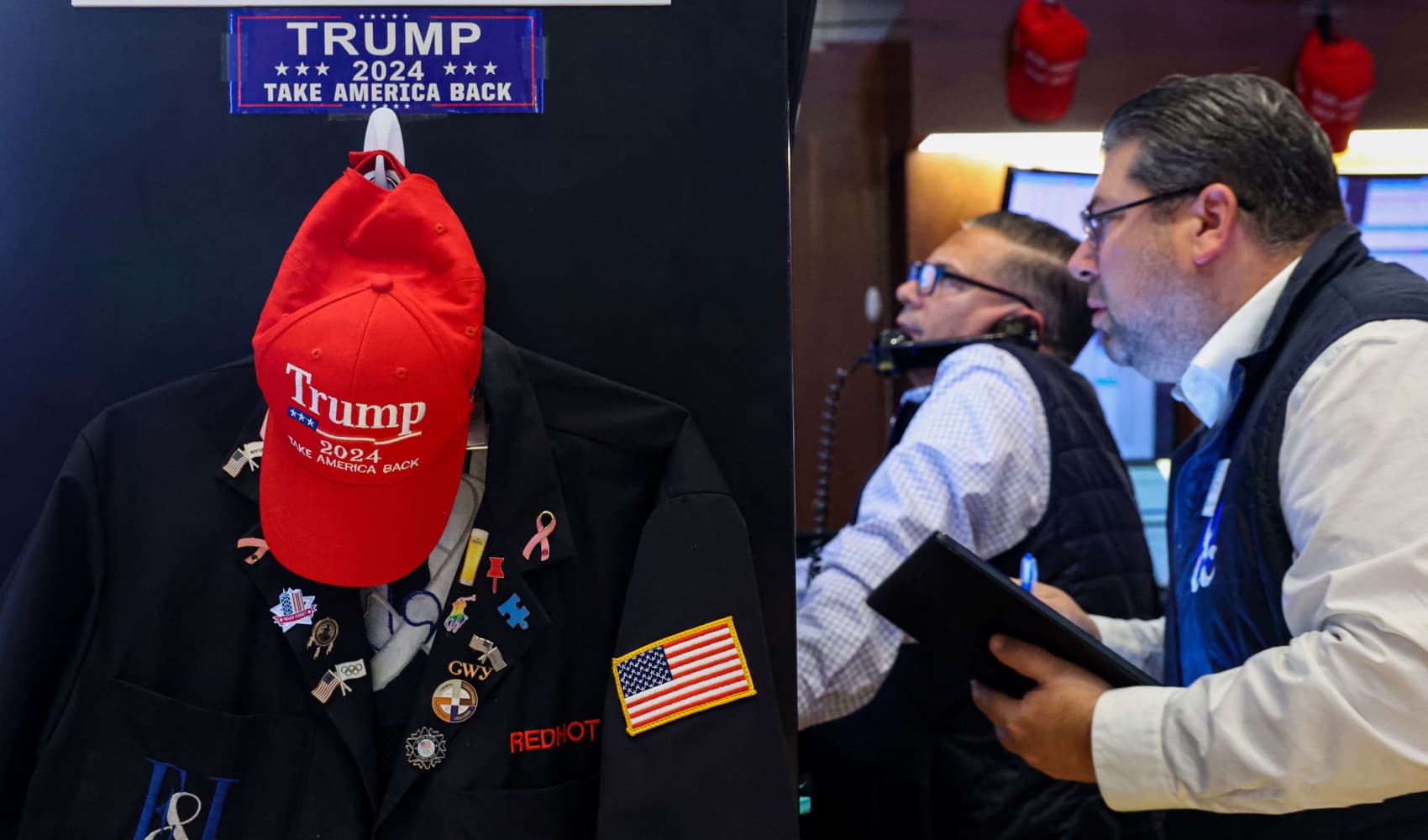
57% of Gen Zers want to be influencers—but ‘it’s constant, Monday through Sunday,’ says creator
More than half of young people want to be influencers — 57%, to be exact.
That's according to a 2023 Morning Consult survey of 1,000 Gen Zers. And they're not alone. Nearly half, 41% of adults overall would choose the career as well, according to a similar Morning Consult survey of 2,204 U.S. adults.
Their reasons vary. Some "are very excited about the idea of celebrity, fame and money," says Victoria Bachan, president of talent at influencer agency Whalar. Some "are just genuinely looking for a place to connect and find community," and there are those who simply love to create using the tools of social media, she says.
Whatever their reasons, the job may be harder than it seems. Here's what it looks like day-to-day and the many challenges creators face along the way.
Get top local stories in Philly delivered to you every morning. Sign up for NBC Philadelphia's News Headlines newsletter.
'There's a misperception that it's easy'
Becoming a paid creator is basically akin to running "your own independent media company," says Taylor Lorenz, host of tech and culture podcast Power User and author of "Extremely Online."
"There's a misperception that it's easy," she says, adding that, "most startups fail, and I think most media startups fail, too."
There are 4.2 billion social media users around the world, according to linking tool company Linktree's 2022 Creator Report. Out of those, 200 million are creators, or individuals who monetize their audiences. That means just 4.7% of social media users are making money from it.

Even if they are making money from it, it's not necessarily enough to live on. About half, 48% of creators make $15,000 or less per year, according to a 2023 survey of more than 2,000 creators by influencer marketing agency NeoReach. Less than a third, 28.9% make more than $50,000 per year doing it.
Money Report
'It's just constant, Monday through Sunday'
For those who are able to make a career out of it, the day-to-day can be grueling.
Hannah Williams, 27, and her husband run the popular TikTok account Salary Transparent Street, where they ask people around the country what their salaries are. The channel has 1.4 million followers, and most of their income comes from brand partnerships with companies like Capital One, with a far smaller share coming directly from the platforms they post content on through creator funds.
Williams has been a full-time creator since quitting her previous job as a data analyst in 2022. In 2023, her business brought in more than $1 million altogether. She now pulls in $125,000 per year for her own salary.
Williams usually starts working around 8 a.m., including emails, video editing and planning content. Between noon and 3 p.m., she's usually on calls with clients. She takes a break around 4 p.m. and gets back to her desk around 6 p.m., at which point she's working "full on until midnight," she says. She and her husband also travel a lot for the job, and they post at least once a day.
"It's just constant, Monday through Sunday," she says. "From the time you wake up to the time you go to bed, the internet's on, so you're on as well."
Caroline Lasher, 22, has been a full-time creator since she graduated college in 2022. Her Instagram has 126,000 followers and her TikTok has just under 85,000. Lasher mainly creates beachy lifestyle content and makes much of her money through brand partnerships and affiliate links. Her income fluctuates, but she often brings in more than $10,000 per month.
Lasher wakes up around 8 a.m. and starts reading emails and contracts. She tries to post every day, so might do some editing in the morning as well. She'll then go out shooting until the evening.
"I'm my own photographer, videographer and I edit everything myself," she says, "So when I go out, I'll usually have my tripod and I'll look at public locations that I can take pictures at." When she gets home in the evening, she'll have dinner and decompress, then often edit until about 10 p.m. She works every day but takes breaks to grab a meal with a friend or after dinner.
Lasher's schedule also depends on the companies she works with. There are weeks and months when they're all trying to promote new seasonal products, and weeks when demand for partnerships is lower.
For many creators, clients can also be fickle and make demands like nonsensical timelines. "It's almost like things that are in writing don't matter," says Bachan. "Initial timelines don't matter. Contracts don't matter. [Brands] want what they want, when they want, how they want it."
Whatever the demands, Lasher, too, finds it's nonstop.
Influencing is "so hard to walk away from," she says, "since it's on your phone and everyone's on their phone all the time."
'We've literally been on our toes for nine years'
This type of never-ending schedule lends itself very easily to crashing.
"I have burned out," says Lasher. "It usually comes in waves." When it does, she'll either give herself a few days off or simply work through it.
Creators say that the platforms they post on make it more challenging to take a break. Going for a few days without posting might mean that their content won't be shown to as much of their audience when they return. Despite Lasher's mental state at times, "I feel like not being active is going to hurt me," she says.
There are other challenges as well. Platforms change or disappear altogether, leaving creators needing to reinvent themselves anew somewhere else. TikTok itself might be banned in January 2025.
Leslie Mosier, 32, has been running social media accounts for her dog, Doug the Pug, since 2013. After getting some sponsorship deals, she dove into creating full time in 2015. Their Facebook page has 5.7 million followers, their TikTok has 6.1 million followers and their YouTube page has 634,000 followers. Doug the Pug has made money through sponsorship deals, books deals and merchandising. Most recently, Mosier and her husband launched an organic dog product company called Nonipup.
"Nothing stays the same for longer than, like, six months," says Mosier of the fluctuating popularity of platforms and the constant introduction of new ones. She adds that "we've literally been on our toes for nine years."
'You can imagine the racism that my partner and I experience'
Another unique component of the job, and ultimately one of the most challenging, is that it's public facing.
"You basically have all the downsides of traditional celebrity fame and very few of the upsides," says Lorenz. "So you get hate, harassment, stalkers. There's not a single content creator I've ever talked to that hasn't dealt with online abuse."
Williams and her husband, for example, are an interracial couple, "so you can imagine the racism that my partner and I experience on a near daily basis," she says. She's been called various derogatory terms and says she's gotten comments like "you guys will be divorced and she'll be pregnant in a year."
'Do something you enjoy doing, even if no one's watching'
Still, there's plenty that creators enjoy about their jobs. Williams enjoys the freedom and flexibility it brings. Lasher loves photography and the creative aspects of it. Mosier loves putting a smile on people's faces with her puppy.
Caspar Lee, 30, was a full-time YouTuber for about seven years, making comedic videos about his life and ultimately getting to interview movie stars like Will Ferrell and Kevin Hart. He still has more than 6.5 million followers on his channel, plus millions more on his other social media platforms.
But in 2019, he realized he just "didn't love the process as much as I used to," he says. So he quietly stepped away. He now works on various entrepreneurial ventures, including talent management company MVE Management and venture capital firm Creator Ventures.
Among his advice for finding success as a creator is to use the tools at your disposal, to diversify the platforms you post on and to find a niche for the content you make. Plus, he says, "it's hard, so my advice would be do something you enjoy doing, even if no one's watching."
Want to master your money this fall? Sign up for CNBC's new online course. We'll teach you practical strategies to hack your budget, reduce your debt, and grow your wealth. Start today to feel more confident and successful. Use code EARLYBIRD for an introductory discount of 30% off, now extended through September 30, 2024, for the back-to-school season.
Plus, sign up for CNBC Make It's newsletter to get tips and tricks for success at work, with money and in life.






